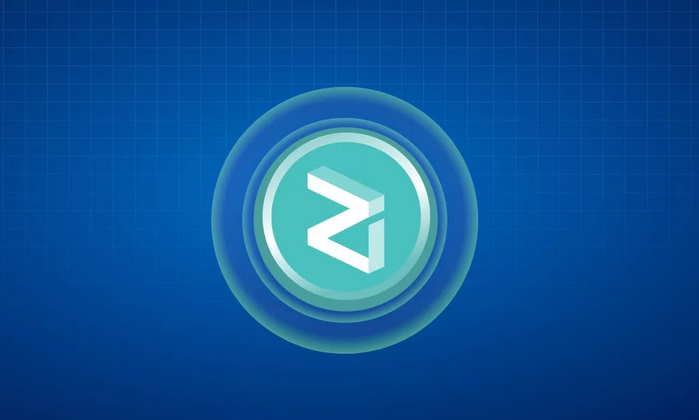-
 Bitcoin
Bitcoin $94,612.2058
-1.31% -
 Ethereum
Ethereum $1,824.7761
-0.76% -
 Tether USDt
Tether USDt $1.0000
-0.03% -
 XRP
XRP $2.1734
-1.52% -
 BNB
BNB $591.8527
-0.83% -
 Solana
Solana $146.9309
1.08% -
 USDC
USDC $0.9999
-0.03% -
 Dogecoin
Dogecoin $0.1733
-0.98% -
 Cardano
Cardano $0.6847
-1.84% -
 TRON
TRON $0.2489
0.21% -
 Sui
Sui $3.4067
7.04% -
 Chainlink
Chainlink $14.0780
-0.30% -
 UNUS SED LEO
UNUS SED LEO $9.0918
1.21% -
 Avalanche
Avalanche $19.9628
-1.13% -
 Stellar
Stellar $0.2676
-1.26% -
 Shiba Inu
Shiba Inu $0.0...01293
-1.18% -
 Toncoin
Toncoin $3.0281
-2.37% -
 Hedera
Hedera $0.1773
-1.39% -
 Bitcoin Cash
Bitcoin Cash $360.2996
0.10% -
 Hyperliquid
Hyperliquid $20.6210
-0.75% -
 Litecoin
Litecoin $88.0317
1.85% -
 Polkadot
Polkadot $3.9767
-0.81% -
 Dai
Dai $1.0000
-0.03% -
 Bitget Token
Bitget Token $4.3175
-1.02% -
 Monero
Monero $273.7451
-0.03% -
 Ethena USDe
Ethena USDe $1.0003
-0.03% -
 Pi
Pi $0.5919
-0.04% -
 Pepe
Pepe $0.0...08305
1.37% -
 Uniswap
Uniswap $5.0937
0.17% -
 Aptos
Aptos $5.1531
0.12%
Popular science: What kind of currency is ZIL coin? How to obtain ZIL coins?
Zilliqa's unique sharding mechanism enables high throughput and scalability, making ZIL coins suitable for decentralized applications requiring fast and efficient transactions.
Nov 04, 2024 at 07:18 am

What is ZIL Coin?
ZIL coin is a cryptocurrency developed by Zilliqa, a blockchain platform designed to provide high throughput and scalability for decentralized applications.
Zilliqa's unique consensus mechanism, known as "sharding," divides the network into smaller groups of nodes, enabling transactions to be processed in parallel. This significantly improves transaction speed and increases network capacity.
ZIL coins are the native token of the Zilliqa blockchain. They are used for:
- Gas fees for executing transactions and deploying smart contracts
- Staking to participate in network governance and earn rewards
- Access to decentralized applications built on the Zilliqa platform
How to Obtain ZIL Coins
There are several ways to obtain ZIL coins:
1. Purchase on Cryptocurrency Exchanges:
- ZIL coins can be purchased on various cryptocurrency exchanges, such as Binance, OKEx, and Huobi.
- Users can create an account on these exchanges and deposit funds to buy ZIL coins with supported fiat currencies or other cryptocurrencies.
2. Stake ZIL Coins:
- Users can stake their ZIL coins to participate in the network's governance and earn rewards.
- Staking involves delegating ZIL coins to node operators, who validate transactions and secure the network.
- Rewards are paid out to stakers proportional to their stake size.
3. Participate in Network Events and Airdrops:
- Zilliqa occasionally conducts airdrops and network events where users can earn ZIL coins for participating in community activities or completing tasks.
- Users should follow official Zilliqa channels for announcements on these events.
4. Mining ZIL Coins:
- ZIL coins are not minable through traditional methods like Bitcoin mining.
- Instead, ZIL coins are generated through staking and other network activities.
Disclaimer:info@kdj.com
The information provided is not trading advice. kdj.com does not assume any responsibility for any investments made based on the information provided in this article. Cryptocurrencies are highly volatile and it is highly recommended that you invest with caution after thorough research!
If you believe that the content used on this website infringes your copyright, please contact us immediately (info@kdj.com) and we will delete it promptly.
- Bitcoin price predictions: BTC to $1 million by 2028 as multiple catalysts align
- 2025-05-05 16:20:12
- SHIB Aims for $0.00003 as ADA Holds Steady & BlockDAG’s Podcast Strategy Lifts Its $225.5M Presale
- 2025-05-05 16:20:12
- US Senator Elizabeth Warren Has Taken Swipes at the GENIUS Act
- 2025-05-05 16:15:12
- OpenAI Ignored Concerns from Expert Testers When It Rolled Out an Update to ChatGPT That Made It Excessively Agreeable
- 2025-05-05 16:15:12
- What Is Tokenized Gold?
- 2025-05-05 16:10:11
- Don't Miss the Troller Cat (TCAT) Presale. This New Presale Just Smashed $40K in 24 Hours and the Hype Is Real
- 2025-05-05 16:10:11
Related knowledge

What is Ethereum’s Slashing mechanism and how to punish malicious behavior?
Feb 20,2025 at 03:08am
Key PointsOverview of slashingDifferent types of slashing in EthereumIncentives and consequences of slashingIdentifying and reporting slashed validatorsOngoing discussions and potential improvementsEthereum's Slashing Mechanism: Punishing Malicious BehaviorEthereum's slashing mechanism is an essential tool for ensuring network security and punishing mal...

What is the verifier node of Ethereum and how to become a verifier?
Feb 19,2025 at 06:00pm
The Verifier Node of Ethereum: A Comprehensive GuideKey Points:What is a Verifier Node?How to Become a Verifier NodeResponsibilities and Rewards of a Verifier NodeMinimum Requirements for Becoming a Verifier NodePotential Difficulties in Running a Verifier Node1. What is a Verifier Node?A Verifier Node is an independent entity on the Ethereum network th...

What is Ethereum’s staking, and how to participate and earn money?
Feb 19,2025 at 04:37pm
Key Points:Understanding Ethereum's Staking MechanismSteps to Participate in StakingBenefits and Rewards of StakingSecurity and Risk ConsiderationsTechnical Requirements and Hardware OptionsPotential Challenges and Troubleshooting TipsFAQs on Ethereum StakingWhat is Ethereum's Staking?Proof-of-Stake (PoS) is a consensus mechanism used in blockchain netw...

What is Ethereum’s DAO (Decentralized Autonomous Organization) and how does it work?
Feb 20,2025 at 03:12am
Key PointsDefinition and Structure of a DAOGovernance and Decision-Making in DAOsBenefits and Use Cases of DAOsChallenges and Limitations of DAOsWhat is Ethereum's DAO (Decentralized Autonomous Organization) and How Does It Work?Definition and Structure of a DAOA Decentralized Autonomous Organization (DAO) is an innovative governance and management fram...

What is Ethereum's multi-signature wallet and how to improve security?
Feb 20,2025 at 02:18pm
Key Points:Understanding the Concept of a Multi-Signature WalletBenefits and Drawbacks of Multisig WalletsRequirements for Setting Up a Multisig WalletStep-by-Step Guide to Generating a Multisig WalletImplementing Strategies for Enhanced Security1. Understanding the Concept of a Multi-Signature WalletA multi-signature (multisig) wallet in the Ethereum e...

What is Ethereum's oracle and how to provide data for smart contracts?
Feb 21,2025 at 01:30am
Key Points:Understanding the concept of oracles in EthereumExploring different types of oraclesDetailed guide on how to provide data for smart contractsAddressing potential challenges and considerationsWhat is Ethereum's Oracle?Oracles are crucial components in the Ethereum ecosystem, enabling smart contracts to access real-world data and off-chain even...

What is Ethereum’s Slashing mechanism and how to punish malicious behavior?
Feb 20,2025 at 03:08am
Key PointsOverview of slashingDifferent types of slashing in EthereumIncentives and consequences of slashingIdentifying and reporting slashed validatorsOngoing discussions and potential improvementsEthereum's Slashing Mechanism: Punishing Malicious BehaviorEthereum's slashing mechanism is an essential tool for ensuring network security and punishing mal...

What is the verifier node of Ethereum and how to become a verifier?
Feb 19,2025 at 06:00pm
The Verifier Node of Ethereum: A Comprehensive GuideKey Points:What is a Verifier Node?How to Become a Verifier NodeResponsibilities and Rewards of a Verifier NodeMinimum Requirements for Becoming a Verifier NodePotential Difficulties in Running a Verifier Node1. What is a Verifier Node?A Verifier Node is an independent entity on the Ethereum network th...

What is Ethereum’s staking, and how to participate and earn money?
Feb 19,2025 at 04:37pm
Key Points:Understanding Ethereum's Staking MechanismSteps to Participate in StakingBenefits and Rewards of StakingSecurity and Risk ConsiderationsTechnical Requirements and Hardware OptionsPotential Challenges and Troubleshooting TipsFAQs on Ethereum StakingWhat is Ethereum's Staking?Proof-of-Stake (PoS) is a consensus mechanism used in blockchain netw...

What is Ethereum’s DAO (Decentralized Autonomous Organization) and how does it work?
Feb 20,2025 at 03:12am
Key PointsDefinition and Structure of a DAOGovernance and Decision-Making in DAOsBenefits and Use Cases of DAOsChallenges and Limitations of DAOsWhat is Ethereum's DAO (Decentralized Autonomous Organization) and How Does It Work?Definition and Structure of a DAOA Decentralized Autonomous Organization (DAO) is an innovative governance and management fram...

What is Ethereum's multi-signature wallet and how to improve security?
Feb 20,2025 at 02:18pm
Key Points:Understanding the Concept of a Multi-Signature WalletBenefits and Drawbacks of Multisig WalletsRequirements for Setting Up a Multisig WalletStep-by-Step Guide to Generating a Multisig WalletImplementing Strategies for Enhanced Security1. Understanding the Concept of a Multi-Signature WalletA multi-signature (multisig) wallet in the Ethereum e...

What is Ethereum's oracle and how to provide data for smart contracts?
Feb 21,2025 at 01:30am
Key Points:Understanding the concept of oracles in EthereumExploring different types of oraclesDetailed guide on how to provide data for smart contractsAddressing potential challenges and considerationsWhat is Ethereum's Oracle?Oracles are crucial components in the Ethereum ecosystem, enabling smart contracts to access real-world data and off-chain even...
See all articles




















































































